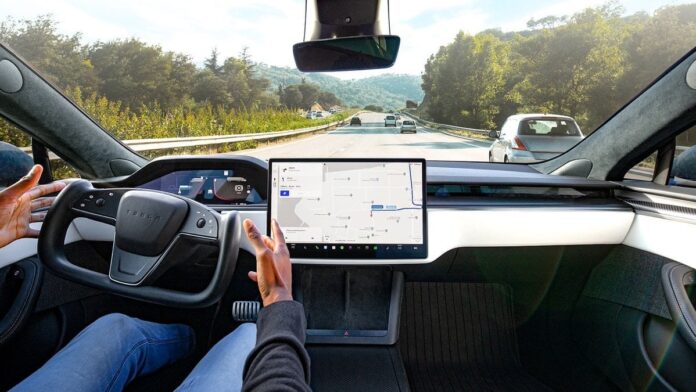Tesla’s Full Self-Driving (FSD) Supervised system, which allows vehicles to operate with minimal human input, is facing slower-than-expected regulatory approval in China, according to a report.
Last month, Tesla announced plans to introduce its FSD system in China by the first quarter of 2025. However, sources familiar with the situation have indicated that the deployment may not progress as swiftly as the company initially projected.
“The progress of the rollout won’t likely match the timeline the company had envisioned,” a source told China Daily. The ongoing evaluation of the US automaker’s semi-autonomous driving system was reported today, citing multiple insiders.
This will likely result in the timetable for launching FSD in China being delayed again. The source added that the Chinese government is open to allowing Tesla to test certain features of its FSD Supervised system in select cities as long as all current laws and regulations are strictly followed.
During a July earnings call, Tesla CEO Elon Musk mentioned that the company was likely to obtain regulatory approval to introduce its Full Self-Driving (FSD) system in additional markets, such as Europe and China, by the end of the year.
Tesla later reiterated that it has plans to introduce the FSD Supervised system in both China and Europe early next year, contingent on regulatory approvals. This information was outlined in a product roadmap shared by Tesla’s artificial intelligence team on the platform X on September 5.
One of the primary challenges for FSD Supervised in China centers on the collection and management of geographic data. Experts have pointed out that Tesla has enlisted certified local firms to handle the mapping work.
Elon Musk, Tesla’s CEO, has sought approval to access certain non-sensitive video data to aid in system training. The data will be rigorously reviewed by the relevant authorities, a source familiar with Tesla’s operations told China Daily.
Under Chinese law, foreign companies are required to work with authorized local entities for the collection, storage, transmission, and processing of geospatial data, including data from smart vehicles.
This week, both Tesla and Mobileye, Intel’s autonomous driving subsidiary, reiterated their commitment to complying with Chinese regulations.
This followed a recent announcement from China’s Ministry of State Security, which revealed that a foreign company had engaged in illegal mapping activities in China under the guise of smart driving research, in partnership with a licensed local firm. The ministry did not specify which companies were involved in the incident.


